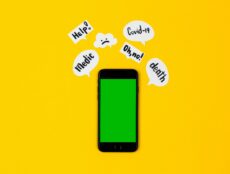
Articles
Editor’s Picks
How Parents Are Dealing with Remote Learning at Home, According to 3 Surveys
By Henry Kronk
May 25, 2020
A recent New York Times headline stated: ‘It was just too much’: How Remote Learning Is Breaking Parents. While stories like these are undoubtedly a reality for many American families, recent data paints a far more nuanced picture. Many research bodies have uncovered evidence of widespread resilience among parents, increased engagement in their kids’ education, and an optimistic outlook for their future. This data, taken from samples of thousands of families, also hints at ways in which the COVID-19 outbreak and the move to online learning is changing the ways that families approach and manage education.
“What we are hearing from families right now is that even as challenging as school closures have been for them, they are looking to next year as an opportunity to engage even more deeply with their children’s teachers and schools,” said Learning Heroes Founder and President Bibb Hubbard. “This is a moment to establish clear expectations for parent-teacher relationships grounded in trust and a shared understanding of the child’s progress and academic achievement.”
Below, we summarize data from three recent reports. The data science firm Civis is compiling an ongoing nationally representative survey. Their current sample includes 7,922 respondents. Pearson and its virtual charter school network Connections Academy created their Parent Pulse Report with responses from 1,049 families provided by Harris and Dynata. Edge Research, on behalf of the non-profit Learning Heroes, reached 3,645 parents and guardians (with an overemphasis on African American and Hispanic families).
How Parents Are Dealing with Remote Learning at Home
As one might expect, both Pearson and Learning Heroes found parents were more engaged in their kids’ school work. For Learning Heroes respondents, 67% agreed with the statement, “I am more connected with my child’s day-to-day education than ever before.” Civis found that 94% of parents said their kids were doing educational activities at home. Of these 27% reported “taking on the role of educator.”
For many, this has been beneficial. Pearson found that 79% of parents had taken a bigger role in their kids’ education. Of these, 69% “say it’s been a gratifying experience.”
Still, the switch has hardly been easy. 52% of Learning Heroes respondents agree that “supporting their child while they are doing remote school work is harder than they expected.”
Even more among the same sample (57%) said their kids’ remote learning was going better than expected.
The College Question
The studies conflict when it comes to the topic of the potential of pursuing higher education. Roughly half of those surveyed by Civis report changing their kids’ post-high school plans. Compared to a previous survey round on April 23, the number who plan to send their children to college is down 7% at 43%. This is more pronounced among families of color. According to the report, “43% of white parents of high school students report that their children’s plans have changed, compared to 59% of Black parents, and 61% of Hispanic/Latinx parents.”
Pearson’s survey supports this takeaway. Polling in February found 68% of parents expected high schools would prepare their kids for college. In the current sample, that dropped to 55%.
Learning Heroes, however, found the opposite. They asked their respondents, “How confident are you that your child will be well prepared for entrance into and success in college upon graduation from high school?”
In 2019, 65% answered “extremely” or “very.” But this year, it was up to 73%. During the COVID-19 outbreak, this survey found that parents were more optimistic about their kids’ college prospects.
Future Outlook and Uncertainty
While these may be positive indications, families across the board remain anxious, concerned, and uncertain about the future.
Pearson found large majorities of parents saying that school closures had added to overall stress and anxiety for their kids. In the same study, a growing majority (69%) of families are worried their kids are going to fall behind with their education.
Learning Heroes, however, uncovered an interesting phenomenon. When parents are asked about their own kids’ abilities and outlook, they tend to be overly optimistic. For example, their survey asked if parents thought their children were performing academically at or above grade level. A huge majority—92%—answered yes. Considering recent NAEP (“The Nation’s Report Card”) results, these parents are sorely mistaken. If the overall NAEP results hold for this sample, then just 37% of respondents’ kids made the grade.
As stated above, these parents are also highly optimistic their kids will be prepared for success in college.
As Learning Heroes President Bibb Hubbard summarizes: “For the past five years we have seen a huge disparity between parent perceptions of their child’s achievement and the reality. In 2016, 90% of parents believed their child was at/above grade level, now it is 92%. Given there is less communication with the child’s teacher during COVID-19 school closures we see that gap has ticked up.”
But there’s also hope that change is on the way. Majorities of parents answering the Learning Heroes survey–especially Black and Hispanic families–say this moment has catalyzed them into being more engaged with their child’s education. Over 80% of Black and Hispanic families say they are either somewhat or very likely to get a better understanding of what their kids are doing at school, and be more involved with their education. For White families, these figures range from 64% to 69%.
In other words, the COVID-19 pandemic has proven hugely disruptive and difficult for communities and families around the world. It is forcing huge populations to realign their habits. The results of this realignment have yet to solidify, but they may very well bring about positive change.
Featured Image: Charles Deluvio, Unsplash.









2 Comments